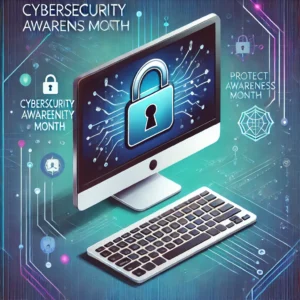As we move towards a future where everything is digitized, from our social lives to our personal records, cyber security becomes more important than ever before. Hackers and cyber criminals are everywhere, and they are always looking for ways to steal information to commit fraud or other heinous cyber crimes. Your digital identity is your most valuable asset, and is at constant risk of being compromised. In this blog post, we’ll explore the importance of cyber security and why it’s imperative to protect your digital identity.
What is Cyber Security?
As the name suggests, cyber security is the practice of ensuring the protection of our digital devices and electronically stored data from unauthorized access, theft, or damage. This can include anything from computer systems to smartphones, tablets, and other devices that store or transmit digital data. Cyber security measures are designed to prevent cyber attacks, data breaches, and other cyber threats.
Why is Cyber Security important?
Our reliance on technology has made us more vulnerable to cyber attacks. Cyber criminals can use a variety of methods to gain access to our personal information, such as phishing emails, malicious software, and hacking. A successful cyber attack can result in the theft of sensitive information like personal identification data, credit card information, and financial records. A data breach can negatively impact an individual’s financial stability, credit score, reputation, and overall mental well-being. Ensuring that your personal information is secure through digital security measures is essential in this day and age.
Cyber Security Best Practices
There are several best practices to ensure your digital identity is protected from cyber threats. First, it’s important to use strong passwords and update them frequently. Another practice is to use a Virtual Private Network (VPN), which encrypts your data and protects your information across networks. Be wary of suspicious emails, texts, and phone calls, as these could be phishing and social engineering attempts to steal your data. Avoid clicking on suspicious links, downloading unknown attachments or apps, and using public Wi-Fi networks to keep your data safe.
The Risks of Not Protecting Your Digital Identity
There are several risks associated with not protecting your digital identity. Identity theft is one of the most common risks, resulting in financial loss and reputational harm. A data breach can also result in the compromise of personal information. The consequences of a data breach can be far-reaching, with companies being held liable for the loss of client data. In some cases, financial, legal, and reputational repercussions can result in the company shutting down. It’s important to take steps to secure your digital identity so you can avoid these risks.
How to get started with Cyber Security
Taking steps to secure your digital identity can seem overwhelming, but it’s an essential investment to make in your digital life. You can get started by educating yourself on best practices, such as regularly updating your operating systems, using antivirus software, and researching the best VPNs. You can also hire a digital security expert to provide guidance and offer customized digital security solutions to suit your needs.
Conclusion:
Cyber security is a critical issue, especially in the digital age where sensitive information is being transferred and stored digitally. Investing in cyber security measures such as strong passwords, encryption, and updated antivirus software helps to protect your digital identity from unwanted attacks and detrimental consequences like identity theft. Following cyber security best practices is essential, as it provides trust and confidence in consumers, business partners, and other organizations that you may interact with online. Taking proactive steps towards cyber security will ensure your digital identity remains safe and secure in the digital age.




